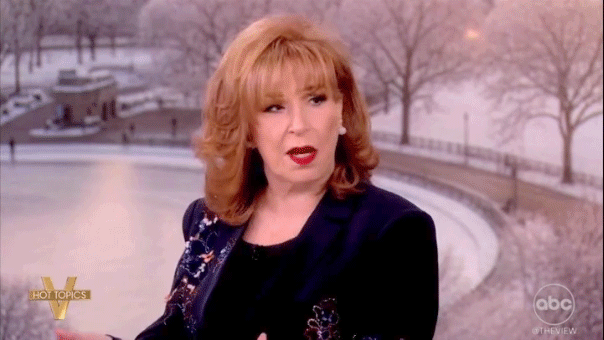Parents, do you know what these teen slang terms mean?
'The Big Weekend Show' co-hosts weigh in on parents struggling to decipher Gen Z's slang words.
From reality television to video games, Generation Z culture has left its mark on the English language.
The BBC reported that more than 3,200 new words and phrases have been added to the Cambridge Dictionary this year. While common language and slang often changes, Wendalyn Nichols, Cambridge Dictionary's publishing manager, told the BBC that these new words and terms have "staying power."
One of the newly entered terms "the ick," which the BBC claimed was popularized by the reality show "Love Island," is defined in the Cambridge Dictionary as "a sudden feeling that you dislike someone or something or are no longer attracted to someone because of something they do." Examples given of the term being used in a sentence were "I used to like Kevin, but when I saw him in that suit it gave me the ick," and "Pet rats give me the ick."
Another term that is associated with relationships with loved ones or pets is "boop," a physical gesture that is described in the dictionary as "a gentle hit or touch on a person's or animal's nose or head, showing that you like them or as a joke." Examples given were "The viral video showed a cute golden retriever getting boops on his nose," and "She greeted me with a friendly boop on the head."

A bridge across the River Cam between the St John's College's Third Court and New Court in Cambridge. (Tu xa Ha Noi via Getty Images)
GEN Z CALLS OUT BABY BOOMERS FOR ‘ANNOYING’ WORKPLACE HABITS: SURVEY
Video game terms were also added like the word "speedrun" which originally meant "to complete a computer game, or part of a computer game, as quickly as possible, especially by taking advantage of any glitches." The term has since been applied to other pursuits done with maximized expediency, such as, "I tried to speedrun college but it affected my mental health," and "He gets up late but he always speed runs his morning shower."
Colin McIntosh, Cambridge Dictionary's programme manager, said to the BBC that "These gaming-inspired words have also begun to influence how we talk about our offline lives."
"Side quest" was credited as another example of what once was a niche video gaming term for doing an optional adventure or objective that diverts from the main story of a game, but now can be used for real life situations such as "After making a side quest to look for shoes, we carried on with the main business of shopping for a wedding dress."
Other terms have less discernible origins, such as "chef's kiss" which is a term for a stereotypical chef gesture but has since been used indicating "something that you think is perfect or excellent." One might say about a TV show that "It was a chef's kiss to have the character leave the series in that way."

Gamers play on games at the Microsoft Corp. XBox stand at the Gamescon video games trade fair in Cologne, Germany, on Wednesday, Aug. 23, 2023. ( Photographer: Alex Kraus/Bloomberg via Getty Images)
IYKYK or "if you know you know" is commonly found on social media and text messages, and is used to "show that there is a shared joke or shared knowledge with the reader that other people might not understand."
While the above words have all been added, the Cambridge Dictionary has a blog keeping tabs on other new terms as well, "Some of them will undoubtedly be short-lived, some will prove popular and eventually make it into our dictionaries."
"Pebbling," for example, is a term associated with penguins giving gifts of small stones, but is used for humans when they engage in "the activity of giving someone small gifts or sending them memes, photos, or videos on social media to show you love them."
CLICK HERE TO GET THE FOX NEWS APP
Another word associated with loved ones, particularly parents is "airport dad," which describes "the father of a family who takes charge of organizing a holiday and likes to arrive at the airport very early, or anyone who behaves in this way when travelling with a group."
Another term with a far more niche application is "Swiftonomics" which is used to describe "the impact on the economy of a city or country caused by the singer Taylor Swift and her popularity."











































